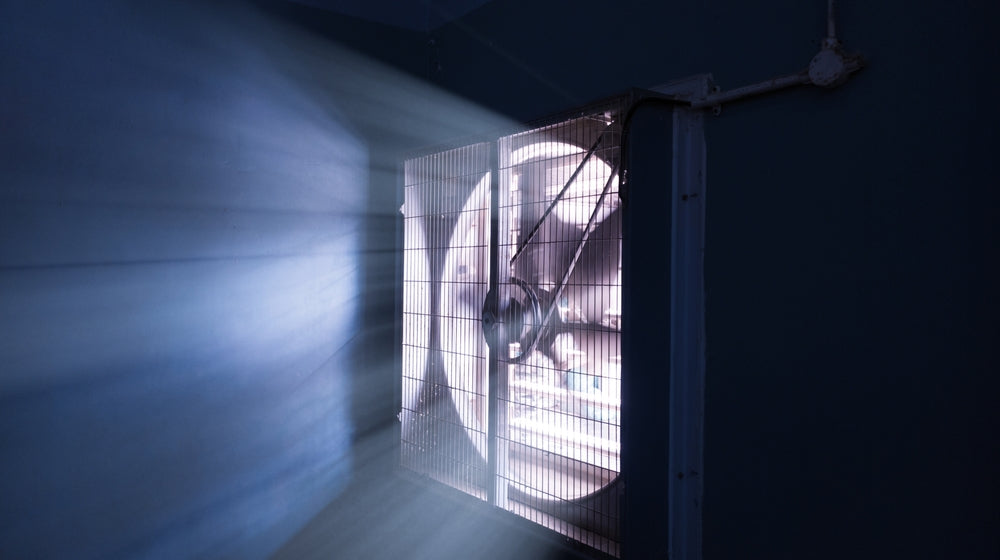
The Key Differences Between Fans and Blowers: Choosing the Right One for Your Needs
When deciding between a fan and a blower, it’s easy to get confused—they both move air. But they’re designed for different purposes, and choosing the right one can make a big difference in the effectiveness of your setup.
Our experts at BCB Sales & Service have examined what distinguishes fans and blowers so you can choose the best option for your specific needs.
What’s the Difference Between Air Cooler Fans and Air Blowers?
Fans and blowers are both used for air circulation, cooling, and ventilation, but they do so in distinct ways:
Fans
Think of fans as devices that move air freely within a space. They are perfect for general airflow, like what you get from an air conditioning or air cooler fan. Fans use rotating blades to push air in all directions, making them ideal for cooling rooms or ventilating large areas.
Blowers
Blowers, on the other hand, focus on moving air in a specific direction. Picture an industrial air blower with its enclosed casing that guides the air through ducts or towards a targeted spot. Blowers usually provide higher pressure than fans, making them useful in tasks like drying, cleaning, or forcing air into confined spaces.
Key Features of Fans
Fans are common in homes, offices, and industrial settings and come in many shapes and sizes.
Here’s what makes fans unique:
- Airflow Direction: Fans are great at circulating air throughout an entire room or area. This makes them perfect for ventilation and cooling without a specific air path.
- Applications: Fans are used in various settings, from air conditioning fans that keep your home cool to larger models like ceiling or wall-mounted fans in warehouses. They are also used in HVAC systems to ensure even air distribution.
- Benefits: Fans are generally energy-efficient, using less electricity than blowers. They are affordable, easy to maintain, and ideal for widespread air movement without a focused airflow.
Key Features of Blowers
Blowers are powerful devices designed to move air with greater force and direction.
Some of the points that make blowers stand out include:
- Air Direction and Pressure: Blowers are built to direct air through a specific path, often at higher pressures. This makes them effective for tasks that require controlled airflow, such as drying surfaces or cooling machinery with an industrial air blower.
- Applications: Blowers are commonly found in industrial settings, where their ability to push air into tight spaces is crucial. For instance, small air blowers are used in workshops for dust control, while larger blower motors are critical in HVAC systems for efficient air distribution.
- Benefits: Blowers' focused nature allows them to perform tasks that fans can’t. They are excellent for targeted drying, cleaning, or boosting airflow in confined or specific areas. However, blowers usually consume more power than fans due to their enhanced capabilities.
Comparing Fans and Blowers: Which One Do You Need?
Choosing between a fan and a blower depends on your specific needs:
- Need General Air Circulation? Go for a fan. Fans are best when you need to move air around a room or ventilate a space without worrying about directing the flow.
- Need Targeted Airflow? A blower is your best bet. Whether an industrial air blower for cooling machinery or a small air blower for spot cleaning, blowers excel at directing air where it’s needed most.
- Energy Use Matters? Fans tend to be more energy efficient. Fans are a smarter choice if you’re running on limited power or need to minimise electricity costs.
- Pressure Requirements? Blowers generate higher air pressure than fans. A blower will perform better if your task involves moving air through ducts or creating a focused stream.
Still not sure which to choose? Consider:
- Task-Specific Needs: A blower's focused airflow is ideal for drying surfaces or cleaning debris. A fan will work perfectly for general ventilation or cooling.
- Space Considerations: Fans are generally more versatile and can be used in open spaces, while blowers often work best in systems where air needs to be directed, such as in ductwork.
- Cost and Maintenance: Fans are usually cheaper to buy and maintain. However, because they have more complex systems, Blowers might require a bit more investment in money and upkeep.
- Noise Levels: Blowers can be noisier due to the higher pressure they generate. Fans might be the quieter option if noise is a concern, especially in indoor spaces.
Real-World Applications of Fans and Blowers in Australia
In Australia, fans and blowers are used across many industries and homes, playing crucial roles in air movement:
- Air Conditioning Fans: These fans are essential for cooling systems, helping circulate cool air throughout buildings to maintain a comfortable environment.
- Industrial Air Blowers: These blowers are used in factories and warehouses. They help with everything from cooling equipment to removing fumes or dust from workspaces.
- Blower Motors in HVAC: Blower motors are the driving force behind many HVAC systems, pushing air through the ducts to ensure even heating or cooling distribution.
Air Conditioning Fans, Industrial Air Blowers, Motors & More with BCB Sales & Service
Deciding between fans and blowers depends on your specific needs and the nature of your task. Fans are fantastic for general air movement, cooling, and ventilation, offering simplicity and energy efficiency. Blowers, on the other hand, are the go-to option when you need power, direction, and control over your airflow.
If you need further advice, contact us at BCB Sales & Service for expert guidance on selecting the right equipment for your needs.
